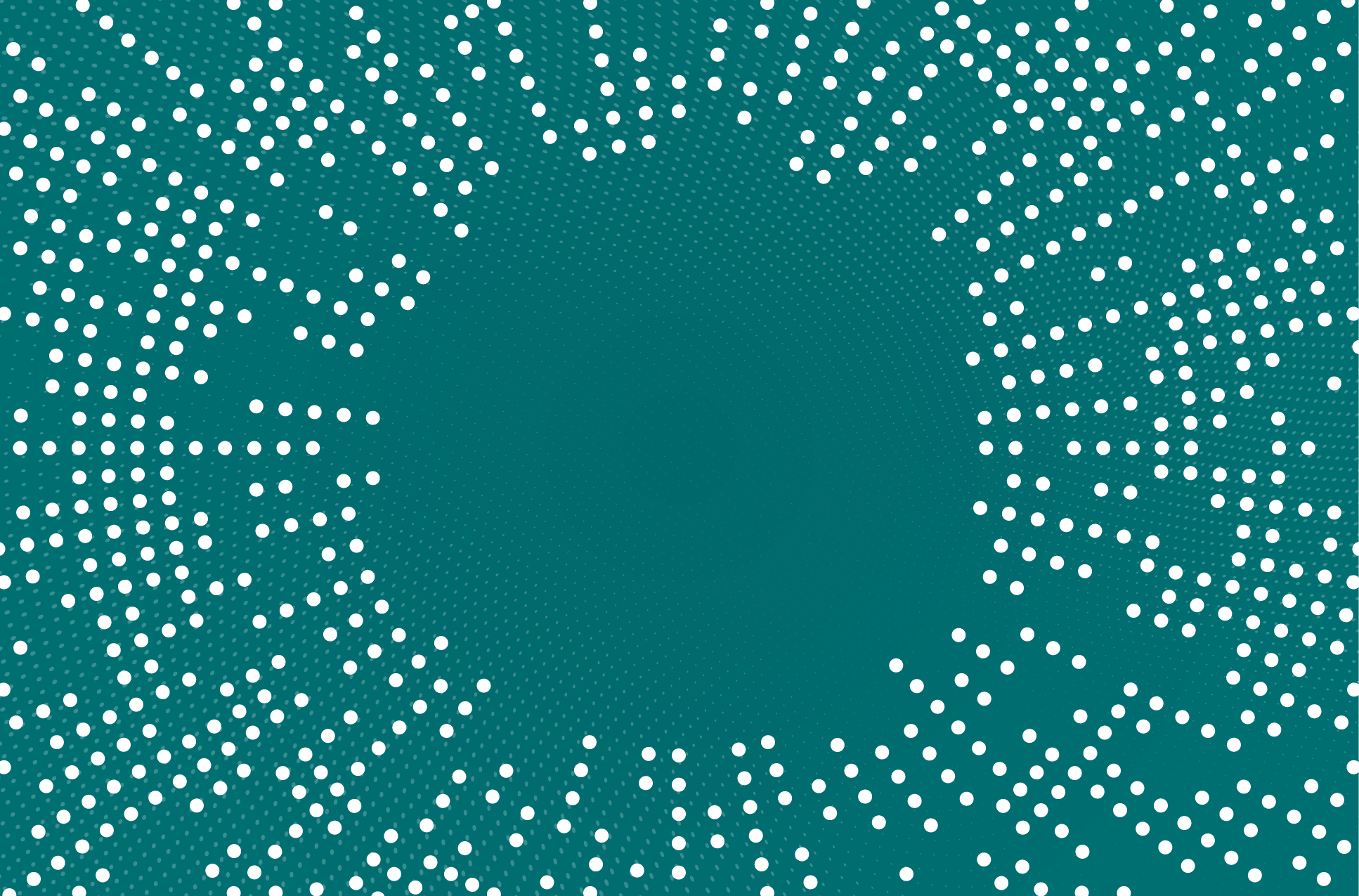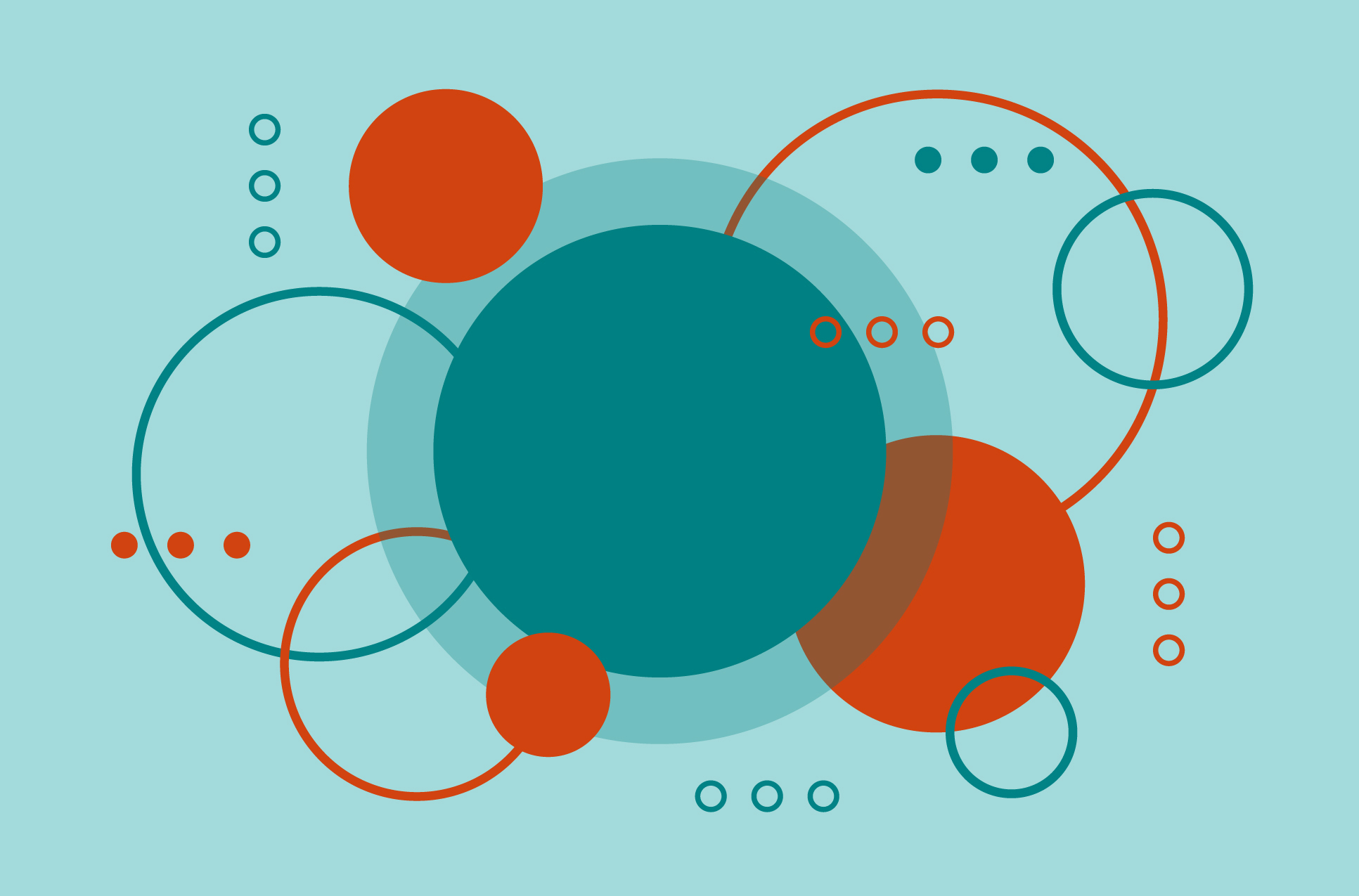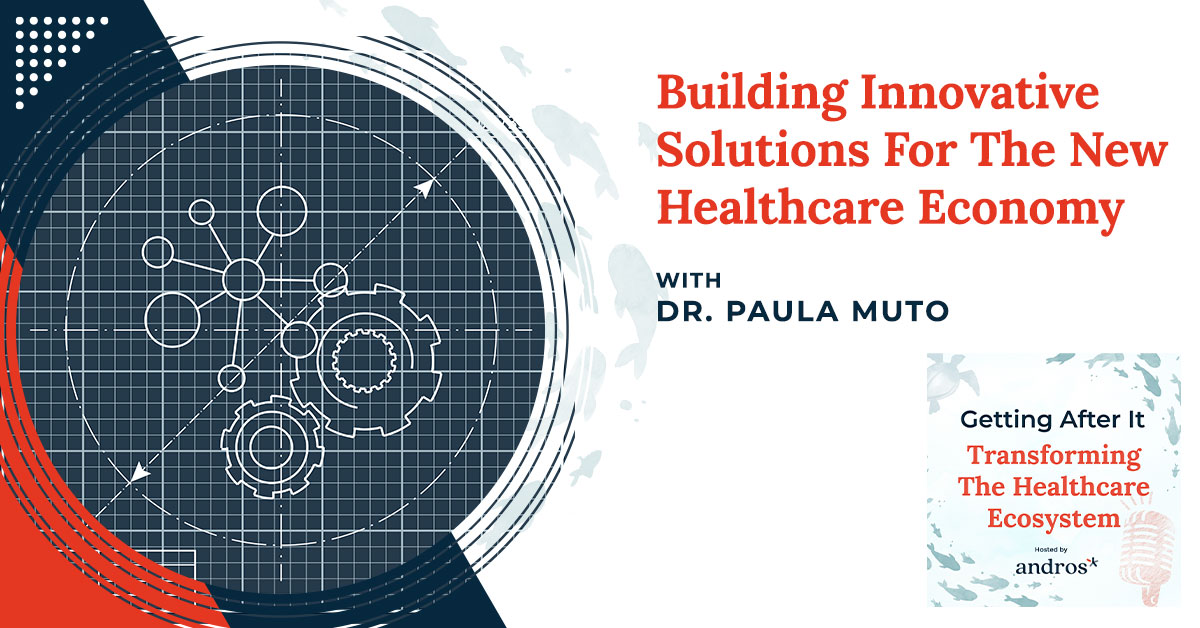
In many ways, the healthcare industry is disempowering to both patients and healthcare professionals. There is a need to put the power back to these key stakeholders, and that takes nothing short of a revolution. A visionary healthcare entrepreneur, Dr. Paula Muto advocates passionately for personalized medicine and a patient-centered approach, emphasizing the importance of patients taking ownership of their healthcare decisions. In this episode, she tells us about UBERDOC, an innovative network of direct-pay specialists reshaping healthcare by prioritizing patients. By eliminating the complexities of traditional insurance and promoting transparency, UBERDOC seamlessly connects patients with specialized medical care. This discussion also delves into the potential of technological innovations in improving patient care and access. Trust emerges as a crucial factor in the patient-physician relationship, as Dr. Muto encourages seeking multiple opinions for informed choices. This episode offers invaluable insights into the future of patient-centric healthcare, driven by innovation and patient empowerment. Tune in!
—
Watch the episode here
Listen to the podcast here
Building Innovative Solutions For The New Healthcare Economy With Dr. Paula Muto
I am lucky to have Paula Muto with us. Welcome, Paula.
I’m glad to be here. Thanks for having me.
I’m super interested in learning more about you, your background, and what you are working on. Without further ado, if you don’t mind, I want to dig in a little bit. I was poking around and it looks like everybody in your family is part of healthcare.
That’s true. I always like to say that I was a surgeon before I was born. My dad was a great surgeon. My brother, my two uncles. I’m married to a surgeon. My other brother’s in medical informatics. We are all in healthcare for a collective century. I was born to be a surgeon.
That’s got to be an amazing coffee talk. You all get around a table on a Sunday morning on a family vacation and just live right into practice.
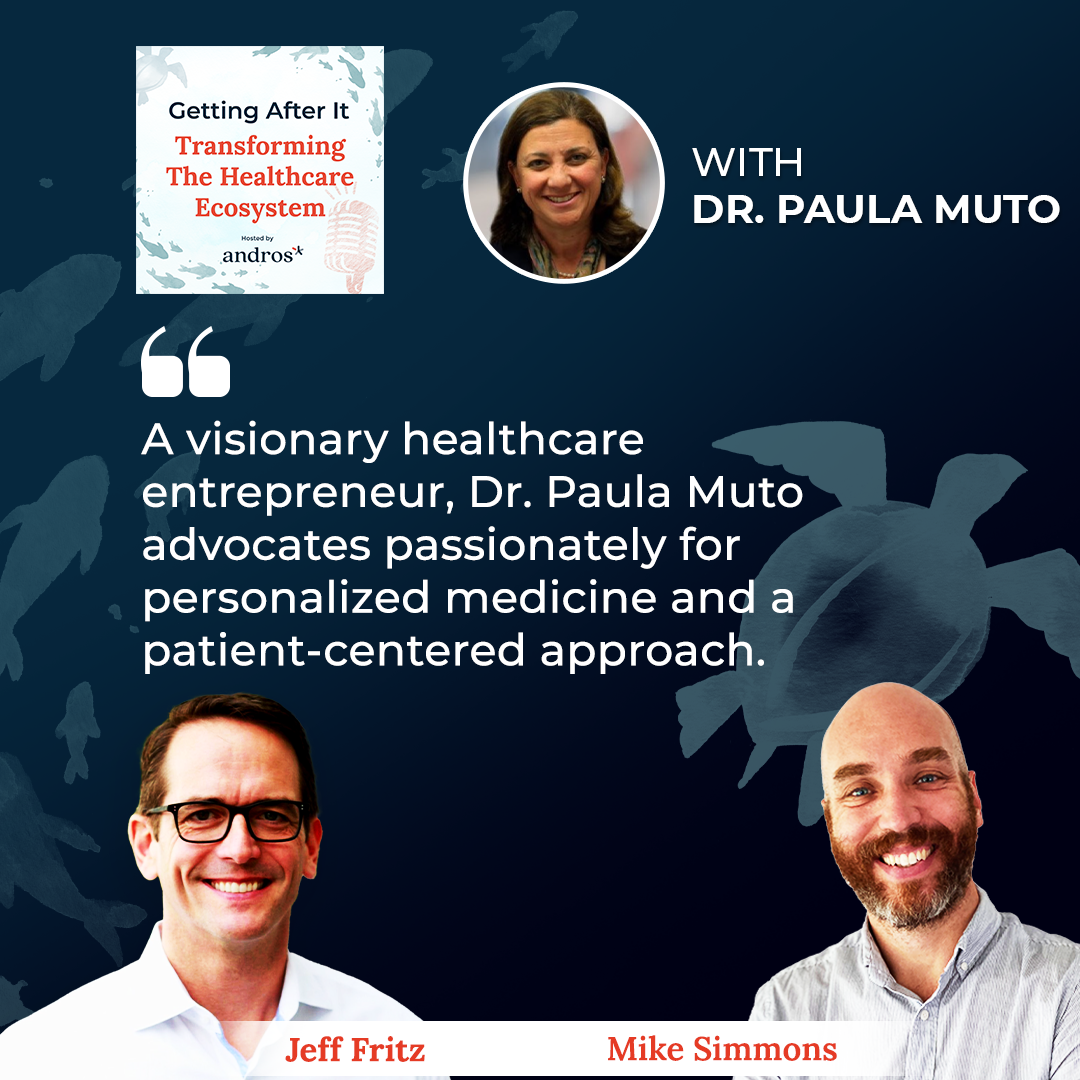
Exactly. That’s why I am where I am now with trying to, I like to say, fix healthcare because it’s the family business. You see everyone’s perspectives. You see your patient’s perspectives. You see your colleagues, you see members of your family in the business and you understand the business and then it doesn’t work anymore.
I’m sure you have shaped a lot of your entrepreneurial style and mission around how do I not be part of the problem. How can I influence the change?
It’s one of those things that you always hear entrepreneurs say like they can’t fall asleep at night without thinking, “I got to change it.” It’s like a virus that gets you. You got to do something. You see a problem and you have to fix it. Being a doctor, it’s like who we are anyway. When you can’t navigate your patients through something, when you see a system that is not working and you see a better way, you put all your efforts into making that way possible. It’s even better when other people start agreeing with and joining you.
[bctt tweet=”When you see a system that’s not working and you see a better way, you put all your efforts into making that way possible. And when other people start agreeing with you and joining you, it’s even better.” via=”no”]
What are the practice areas that you and your family have been in as surgeons?
My dad was a thoracic surgeon, so he did a lot of lung cancer work and pacemakers. He was also a good inventor. He had a lot of inventions and patents. We’d call him an entrepreneur. We called him a crazy inventor, but you call him an entrepreneur now. Brother is a G1 oncologist. My husband is a vascular surgeon like me and a general surgeon as well. I had two uncles, one in orthopedic and one also a gynecologist.
You guys cover a lot of ground.
We do.
I wanted to ask you how you see these challenges, inefficiencies, the things that keep you up at night or wake you up in the early morning. How do you see them relating to the poor outcomes of patients?
I like to think of it as this medicine and this healthcare and the world of medicine, meaning the technology we have, the discoveries we have, the medications, and the way we treat patients, has evolved a lot. What we do for cancer patients now is remarkable. With all the new technologies in medications, AI, all of this stuff is going to give us superpowers.
We are moving patients along so much more rapidly than we ever did before. Our life expectancy is extended because of it. The system, however, was built in the 1960s for an old-fashioned model of healthcare where you went to the hospital and your doctor told you what was best for you. We can’t have that model anymore. We don’t live in this paternalistic model of healthcare. We have our patients know more.
They are our collaborators. They are part of the equation. Their outcome depends on what they do at home. They are not under my watchful gaze, with my nurses taking care of them. They are home. It’s like, “This is a partnership. I can only do what I can do, but then I have to expect that you will follow my instructions and I will give you the appropriate information to heal at home.” We have to understand the patient is a bigger piece of this equation. Our healthcare system has to catch up.
[bctt tweet=”Our patients are our collaborators. They are part of the equation. Their outcome depends on what they do at home.” via=”no”]
I have done a little bit of reading on how you think about the payer and the insurance companies. Not that they are the evil empire, but maybe there’s a financial relationship that got over-indexed towards patient care.
It’s old-fashioned. Insurance is an old-fashioned industry. It’s paper claims. How do you adjudicate paper claims anymore? How do you ensure patients who live in Florida but work in New York? We are in a different world. We have to have better solutions to fit this new economy that we have and our new employees.
I don’t think employers even have to pay for healthcare. I think patients should own their healthcare. I think patients should own their outcomes. They should own their healthcare dollar. The medical establishment has to meet them halfway by becoming more transparent. You are beginning to see these models everywhere.
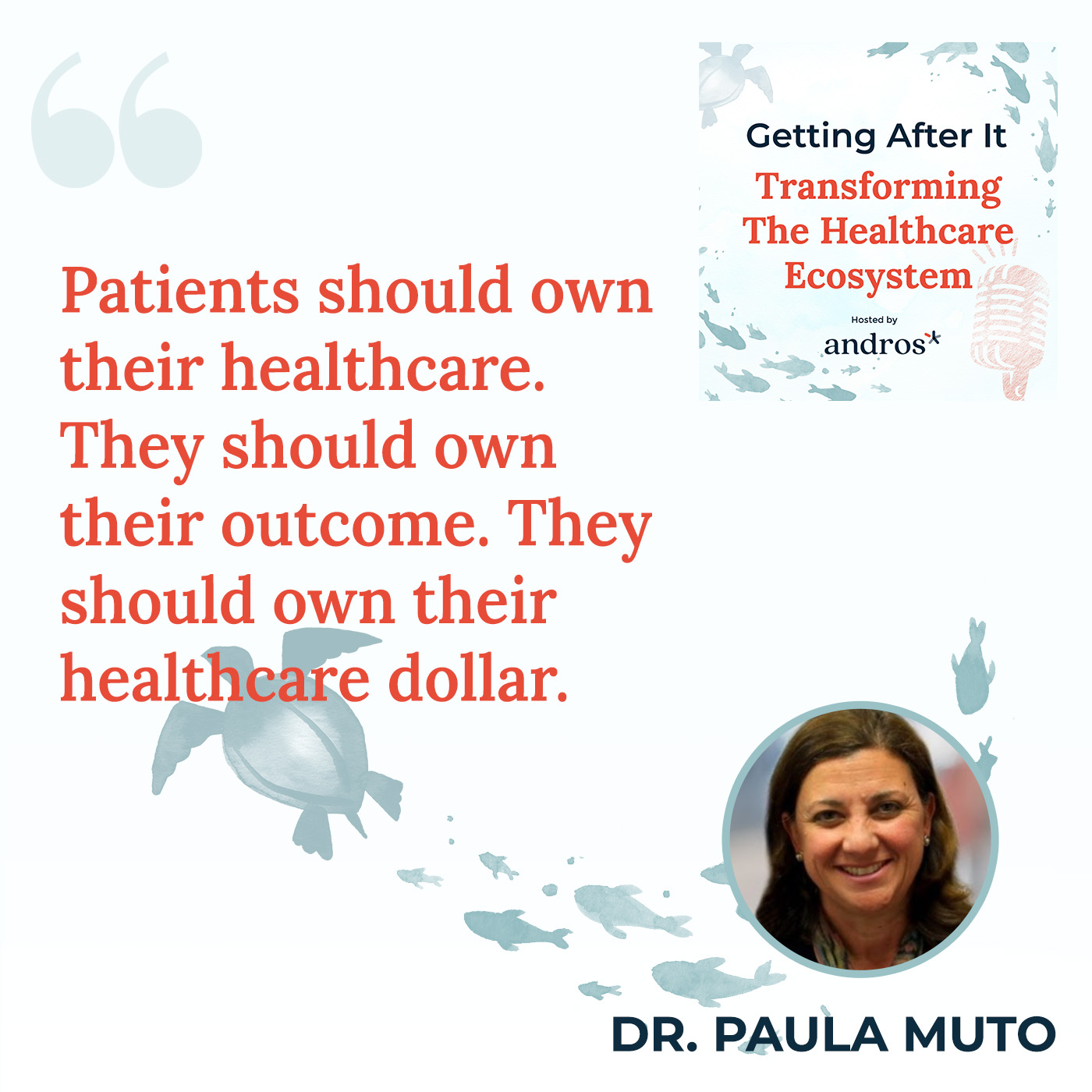
I think the problem is the traditional insurance model is opacity. We waved our insurance card and they took care of everything behind the scenes, but that doesn’t happen anymore. Even a Medicare patient has to pay out of pocket. It’s not right. If patients don’t get it, they pay out of pocket. They pay taxes, premiums, and deductibles. It doesn’t make sense anymore.
You get this other muscle that you are flexing, this entrepreneurial muscle in UBERDOC. When did you start that?
2016 is when I thought of it. We launched to doctors about a year later. We started to patients a year after that and then COVID hit and we were able to build our network. UBERDOC is the largest network of direct pay specialists. You think of a concierge but for specialty care. You can find a doctor nearby and available, make an appointment without a phone call, and pay a transparent price to see a specialist.
You can get into that orthopedic or that dermatologist or maybe a primary care physician and you are getting into a physician’s office and you are getting there in a seamless manner and you are paying a transparent price through your health savings account or credit card. It works around insurance. It doesn’t replace insurance. If you need something further, you can continue that way. It’s the first date to get you in the door.
Is that what happens? I’m new to an area and I need to find a dermatologist. I go on to UBERDOC and I look up other dermatologists in my area. I can get into now what the schedule is. I schedule it and then okay, there’s something, there’s a there, there, and now I need a deeper relationship with that practice.
It’s between you and the practice. It’s like always. You can remain direct pay. You can say, “Are you out of network? I like you anyway. What’s it going to cost me?” This same conversation. The problem is we don’t even start that conversation. Most patients are lost. My sister-in-law moved to North Carolina. She has a dermatology appointment in 2024 and then they called and said the person retired.
Not even in the calendar year. That’s nonsense. For people who work hard and pay a premium, that’s not helpful in any way, shape or form. The shortages and the lack of availability have more to do with network and checking boxes than they necessarily have to do with inventory. We are trying to optimize existing inventory to say, “We have plenty of doctors. There’s plenty of no-shows.”
Every day, patients don’t show up. We are trying to leverage and say, “You have a seat. Give us one seat in your waiting room once a week, maybe twice a week, and see what happens.” It’s like a house seat at a Broadway show. The critic may or may not show up that day. Open up the door. I feel like disrupting from the bottom up is a simple model to do.
Do you have any surprises? You have been doing this now for a while. Are there things that you go, “I didn’t see that coming?”
Yes. I didn’t know that the business world was so not favorable to female founders and women who owned companies. I knew my battles in medicine and surgery, but I had no idea it was so skewed. Ninety-eight percent of funding goes to males. That’s like, “What? I didn’t get that memo.” That was a surprise. It didn’t stop us. We just have to work a little harder. That was shocking to me. In the entrepreneurial world, that was a big surprise.
What a disappointment in this day and age. Come on. There are talented people in all shapes and sizes and genders and races and let’s get over ourselves and solve some problems here.
It does impact for sure because it impacts everything from, again, you have to be a little bit more resourceful so you build a stronger company. That was a surprise. On the business side, also surprised at how I had to learn a little bit about the investment world and so forth. I’m still shocked or rather less surprised by the behavior now. I can predict it.
On the medical side, I was surprised how many doctors loved our platform. We are phenomenally enthusiastic, not just joining UBERDOC, but want to invest in UBERDOC, be a UBERDOC, and tell our friends. Doctors have been unbelievable. I don’t think I’m surprised because I know my colleagues, but I was surprised at the gratefulness that there is an opportunity to make appointments through technology. I think that we went around the country multiple times, pitched this product to many different doctors and different practices, and looked for one person to tell me no.
Are there certain areas that have more zest for the solution? I will give you an example. I take a regimen of supplements that a physician has helped me dial in. I don’t go down to the pharmacy, walk the aisles, and grab all the different things off the shelf. It’s lab-based, but that physician doesn’t get coverage. I pay out of pocket for that and that advice and that council of preventative medicine. For somebody like that, it’s like a no-brainer to be part of a network like this. What other practices are you finding that gravitate towards this model more than others?
I’m finding a lot of the younger specialists who are tech savvy are very willing to connect to patients directly, like a newly minted endocrine surgeon, a hand surgeon, a rheumatologist, or somebody who has the expertise and they are so eager to take care of patients. They understand that technology’s going to be the way they are going to connect to those patients.
They could eliminate the, “You are not going to get covered for that,” because that’s what they get yelled at by all the time. Say, “You are going to see that patient you are not going to pay for. You can’t see that patient.” It is great to take those obstacles away and let them do their best work. From a patient standpoint, people in behavioral health, and psychiatry have been a big depend on the patient’s side.
Patients don’t like to use their insurance for psychiatry. This is a very good model for this. They can remain in a cash-pay model. They can also add the code of the digital component. We are in person as well as telemedicine. We are not digital. We are not telemedicine at all. We are regular old-fashioned doctors, but we encourage our doctors to add telemedicine capability as well because that increases their reach.
When I started this, I thought we were going to be like orthopedics, ENTs, and surgeons. No, we get everybody and family practitioners who are doing exactly what your doctor is doing. These lifestyle doctors looking beyond the box at the whole picture now between genetic risk assessment and calcium scoring, there’s all this stuff out there that is coming fast and furious and you need someone who can digest all of that. A lot of my colleagues are going for extra training to get even better. For example, Type 2 diabetes. That’s completely upended right now, the obesity epidemic. This is exciting stuff. It’s an amazing thing.
It’s personalized medicine. That’s what medicine is. It’s personalized now. It’s always been personalized. We have always treated the problem as the symptom isn’t personalized. The system has been driving into this one-size-fits-all, which is silly because you can’t. Cancer therapies are so targeted into your antibodies and that’s what’s so exciting about all of those things. All of the people who are riding that tide of the highest technology and the individualization of medical care will always gravitate toward UBERDOC because there’s not going to be any restriction in terms of the care of the patient. You wouldn’t be able to have a crack at them without the insurance person saying, “Did you ask permission first? Did you say, ‘Mother, may I?’ I’m sorry.”
That’s democratizing the care. When you think about the broader technology in healthcare, what strikes you as the cool innovations of the day? What are you seeing from your seat? It’s so unique. You get to see so much now.
I’m like a kid in a candy shop. Honestly, I feel like sometimes Lorenzo de’ Medici at the time of the Renaissance. People come into my parlor, into my palace, and show me their stuff. I get doctors from all over the country saying like, “I’m a peripheral neuropathy expert.” I’m like, “What does that mean?” He’s like, “I want to be on your platform.” I’m like, “Please, join us.” People with lifestyle medicine, regenerative medicine, and all of these technologies.
What I think is driving most of medicine is being able to make that connection with your patients, get them on the same page, and continue to communicate with them. It’s old-fashioned doctor-patient. I always say with the new face of old-fashioned medicine, but honestly, it’s come full circle. Your care is so connected to that patient and your patient can text you and say, “Is this what I’m supposed to be feeling right now?”
[bctt tweet=”What’s driving most of medicine is the ability to make a connection with your patient, get them on the same page, and continue to communicate with them.” via=”no”]
The efficiency of that communication is so remarkable that so many of these technologies are impacting the connection between the patient and the doctor. I lean on cancer therapies a lot because that’s evolved. My vascular therapies have evolved tremendously over the years. We moved from a hospital OR to an outpatient office setting three-hour operation in an eight-minute intervention. I don’t even operate on some people. I give them a pill, unfortunately, as a surgeon, but still better for the patient.
You are treating the whole patient with all the weapons you have.
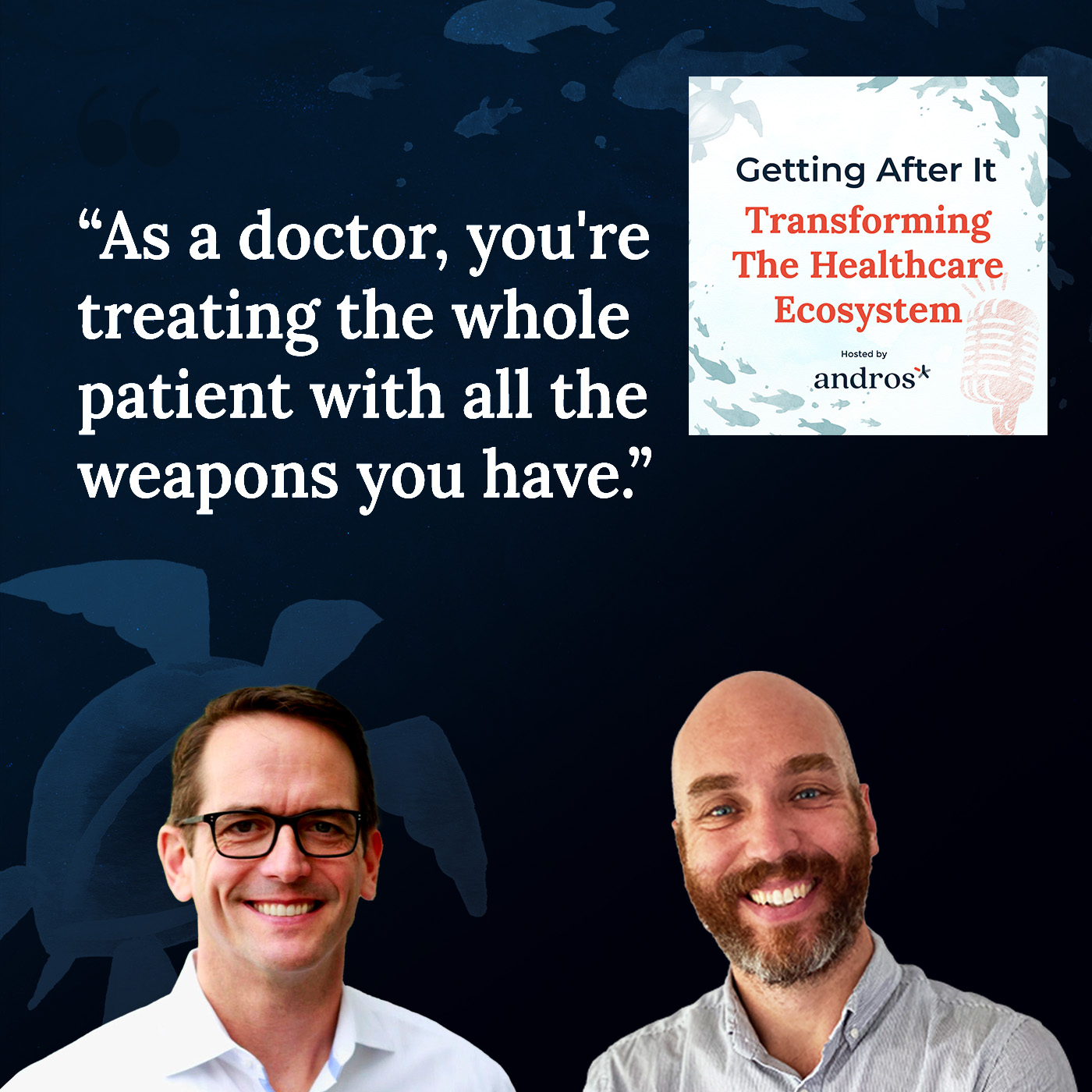
At the end of the day, you are making them feel better. At the end of the day, that’s what we do. I will probably make you feel better, which is so cool. You need flexibility for that. You need a health system that’s also entirely inflexible with the amount of money that we are paying for it.
That was where I was going to go. If we challenge ourselves with these sets of problems that you have and challenge ourselves to come up with innovations and solutions, if we miss this window, we miss this opportunity. What’s at stake for the patients, payers, providers, and tech partners? The whole ecosystem has all these different players in it. Where does your head go?
We are at a crossroads for sure. We can take one path and that path before us, unfortunately, could turn into a two-tier system where you have the haves and the have-nots. Already, people are running to concierge and so forth. UBERDOC was intended to bring the price down to equalize access. You didn’t have to have the right job, employer, or amount of money to get to the best. You could choose to spend your healthcare dollars where you want to.
We have a golden opportunity now to embrace the technology and make the entire system more efficient and lower cost. There are a lot of costs that go to middlemen and claim adjudication stuff that doesn’t matter. Stuff that we don’t need anymore. Redirect more of that healthcare spending to the patient to spend. Give it back to the patient.
If you are healthy as a Medicare Advantage patient, why aren’t you getting that margin bonus? Why is your health system getting it? It would be better to reward the patient and say, “You had a good year. Here’s money for a health savings account, which you can now buy your medication with.” You can go see your doctor that you like and then the following year, you will do it again and you will continue to take more ownership of your healthcare.
I find it interesting when they say that people need more “skin” in the game. Not that you don’t have your whole body in the game, but to have more skin in the game means you have to have the chips to play with. If the house is always holding the cards, then it’s lip service. I think that we are remarkable moment in time where we could start to channel some of that back into every walk of life.
Whether that’s a health voucher for someone on Medicaid to a Medicare health savings account refund for a Medicare patient to rewards for a Blue Cross patient to even perhaps buying Medicare off your tax return for young people who need a portable healthcare plan that’s catastrophic, that goes beyond state lines. All of these are fabulous options to be able to put more of the healthcare dollar into the hand of the patient and then the prices will adjust accordingly.
Final question. If you are talking to a friend’s family member and they are looking for advice on how to take control and manage their care, do you have any easy, quick tips off the top of your head that you can share?
The concept of managed care is exactly right. An insurance company can’t manage your care better than you can. That being said, there’s a lot of background noise out there. You can go to the internet, you can Google, you can ChatGPT and you can find all this information. You should find healthcare professionals and physicians.
[bctt tweet=”An insurance company can’t manage your care better than you can.” via=”no”]
We train physicians. They are remarkable young people who get to medical school, finish medical school, and go into training after years of study. They are experts in their fields. Seek those folks out for those opinions and trust. Don’t ever not trust your physician. The problem is we get a lot of background noise. We have a lot of people who are only five years out of high school now being asked to evaluate patients and write prescriptions.
That’s tough and oftentimes, you say, “You know as much as I know about this.” Trust the system and the process that we train experts. There aren’t many of us. There are 980,000 left and another 115,000 retired or left. We will always take care of you. There’s always availability there. I would say if a family member wants to find and if you are not sure, get another opinion. That’s perfectly okay. If it doesn’t add up in your head, do not trust yourself too. Get that second opinion.
We don’t hear enough about how rigorous our system of education is for licensing a healthcare practitioner.
We have been devalued. They call us providers. We don’t use the term provider referring to a physician because it was used in Nazi Germany to devalue Jewish physicians. We make the distinction that our platform is for physicians. We don’t have any levels. We don’t have providers on our platform, so to speak.
It’s much easier for a system to, again, employ, consolidate, and take these people with skills and put them into like a hospital setting and say, “Go there. Get your care there. We are going to control it all there,” but it’s not the way medicine is practiced anymore. That model was okay in the ‘60s and ‘70s. It doesn’t work anymore. If it were that way, my patients would still be admitted and be in the hospital all weekend.
It’s been great spending time with you. It’s been great to meet you. I feel like we should do this again. It’d be fun to do this in your office and meet face-to-face. That’d be novel.
Anytime.
I appreciate your expertise, knowledge, and candor. Great conversation.
Thank you for having me.
Important Links
About Dr. Paula Muto
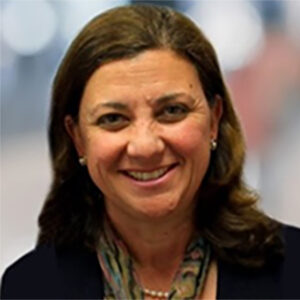 Paula Muto, M.D., F.A.C.S., is the founder and CEO of UBERDOC, and the Director of the Vein Center at Mutosurgical. A graduate of Amherst College and New York Medical College, Dr. Muto is a board certified general surgeon and completed her surgical training at Tufts and her vascular fellowship at the Lahey Clinic. Paula is an advocate of disruption in healthcare and speaks passionately on many issues regarding transparency in healthcare, patient rights and ensuring patient access to the care they need and deserve. The parents of two children, Paula resides in Andover, MA with her husband Jonathan Gordon, M.D., who is also a surgeon.
Paula Muto, M.D., F.A.C.S., is the founder and CEO of UBERDOC, and the Director of the Vein Center at Mutosurgical. A graduate of Amherst College and New York Medical College, Dr. Muto is a board certified general surgeon and completed her surgical training at Tufts and her vascular fellowship at the Lahey Clinic. Paula is an advocate of disruption in healthcare and speaks passionately on many issues regarding transparency in healthcare, patient rights and ensuring patient access to the care they need and deserve. The parents of two children, Paula resides in Andover, MA with her husband Jonathan Gordon, M.D., who is also a surgeon.
